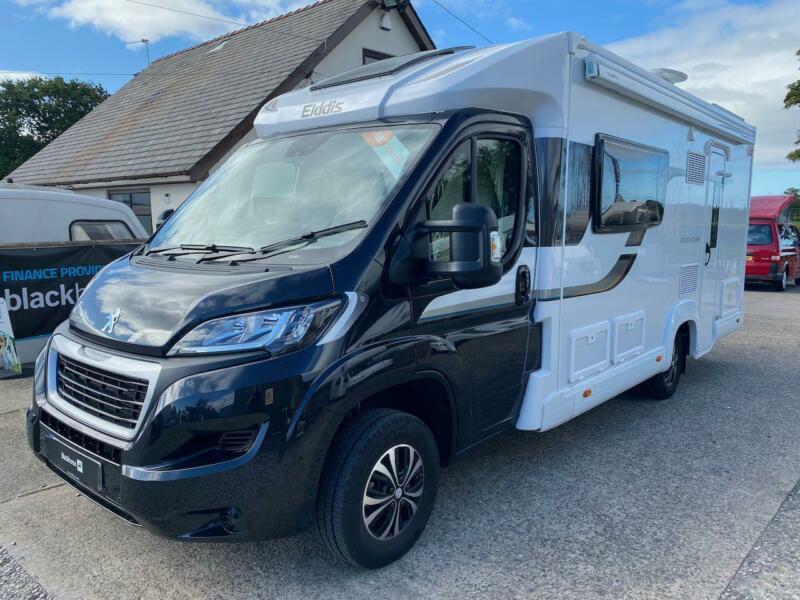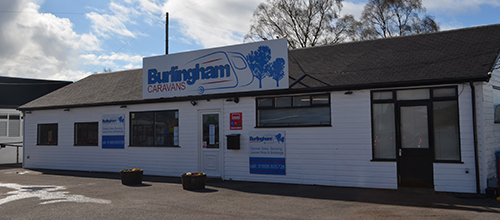Winter Caravanning
Excellent insulation and modern heating systems mean that caravanning is a year-round activity, with many sites as busy at Christmas and New Year as they are in mid-summer. Check out these handy tips to stay comfortable on site, no matter what the temperature is outside.
Many caravan sites have extended their opening season or remain open all year round, where you can enjoy heated toilet/shower blocks, laundry rooms, mains electric hook ups and often hardstanding pitches.
With the right preparation, caravanning can be enjoyed all year round, and there is something quite special about the silence of a snow-covered Certificated Location when snug inside a caravan!
Which gas should I use?
Butane is ineffective as temperatures fall to around freezing (0*C) so the winter caravanner should switch to propane. Most modern appliances work equally well on butane or propane, so all that is required is a change of regulator. Some equipment with high off-take rates, like central heating systems, will only work effectively on propane. If it is more convenient, propane can be used all year round – there is no need to switch back to butane for the summer.
Fresh water
In below-zero conditions, your outside water container may well partially freeze over so you will need a second container inside the caravan you can transfer your water pump to.
Many caravans now incorporate on-board water tanks – or have the capacity to have them retro-fitted – so check your handbook to see if this applies to your model.
There are currently no ‘anti-freeze’ additives on the market that are recommended for use in fresh water supplies.
Waste water
To prevent freezing of the waste tanks or toilet, add car-type anti-freeze. Propylene glycol is most suitable, being less toxic, but it can be difficult to find.
Heating
Most caravans now have balanced flue space heaters, which should be safe to leave on all night. However, there is a very small risk of wind-blown rubbish or snow blocking the flue and creating problems and so we don’t recommend you use these.
LPG heaters without flues must not be left on if all the occupants are sleeping (day or night). If hooking-up to mains, a thermostatically controlled fan heater (1 kW max. is should prevent the interior temperature falling below a certain level.
An increasing number of caravans now have central heating systems, which for prolonged winter caravanning, are ideal. Most systems can be added to a caravan but must be professionally installed for safety.
Water heaters are unlikely to freeze whilst the caravan is occupied, but for travelling in near zero conditions and if the caravan is left unoccupied for any length of time, it must be drained down to prevent frost damage.
Which towcar?
For regular winter caravanners, a four-wheel drive car or all-terrain vehicle is well worth considering. Mud and Snow tyres often improve traction and can be used all year round. For very slippery sites, snow chains might be needed. For more advice, consult our guide on buying a towcar.
Top 10 winter caravanning tips
A porch awning is invaluable for storing wellington boots and hanging waterproofs up to dry, but if you intend to stay on hardstanding pitches, or even frozen ones, you may not be able to peg out. Extra strong steel pegs are advised.
If snow is on the ground, regularly lift and shake the mains cable or it will become permanently embedded.
Regularly clear any drifting snow from underneath the caravan, to ensure air vents and appliance flues are kept free.
Despite the temptation to block off permanent vents – do not do it, it could be dangerous. Try to site the caravan so that fridge vents are away from the prevailing wind.
Good quality sleeping bags or a high-tog quilt are advisable and avoid the need to have a heater on all night.
As water freezes from the top down, insulate your water container with a ‘hat’ and lag the water pipe with foam pipe.
Condensation can be a problem in winter, so moisture-absorbing crystals (available from DIY stores) are useful or even consider a portable dehumidifier.
Continental caravans generally have excellent standards of insulation and refinements like underfloor heating that make them ideally suited to winter caravanning.
With extra appliances in use, ensure adequate fire safety equipment is carried on board – see our leaflet on the subject.
Keep moving parts on the caravan, like steadies, jockey wheel and handbrake well-oiled to prevent seizing. If temperatures are likely to fall below zero, make sure the caravan is on the level and securely chocked and leave the handbrake off – otherwise the brakes might seize on.
(article courtesy of the Caravan Club)

 Bought our Bailey Autograph Motorhome from this professional company. Can but only say FANTASTIC SERVICE and a pleasant transaction. Just need the government to allow us to use it now. Would Definitely Recommend To All"
Bought our Bailey Autograph Motorhome from this professional company. Can but only say FANTASTIC SERVICE and a pleasant transaction. Just need the government to allow us to use it now. Would Definitely Recommend To All"

